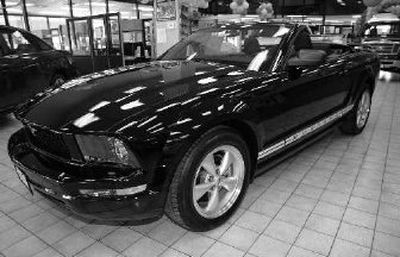Ford likely to post record loss

DETROIT — Ford Motor Co. could post the worst annual loss in its storied 103-year history when the automaker releases its 2006 earnings today.
The old record net loss was $7.39 billion in 1992, but through three quarters of this year, Ford already had lost $7 billion.
Fourteen analysts polled by Thomson Financial expect more red ink in the fourth quarter, predicting an average quarterly loss of $1.01 per share and $1.35 per share for the year, excluding special items.
“The fourth quarter’s going to look real ugly,” said Erich Merkle, director of forecasting for the auto consulting company IRN Inc. in Grand Rapids, Mich. He predicted Ford would get as much bad news out of the way as it can for the end of 2006, beating the 1992 record.
“Let’s just air all our dirty laundry all at once. Take the medicine and then we can move on. I definitely think that’s their philosophy, knowing it’s going to be real poor,” Merkle said.
Burnham Securities analyst David Healy said in a note to investors that Ford has yet to recover from its finances being wrecked by collapsing sales of its F-series pickup trucks and truck-based sport utility vehicles.
The company made a profit of $1.44 billion in 2005, and in the fourth quarter of that year, it produced and shipped 355,000 of the high-profit large and mid-sized truck models, Healy said. “In our view, most of the year-to-year increase in losses lies in the 142,000 year-to-year decline in these high-profit models,” Healy said.
Production of other Ford models dropped by 53,000 in the fourth quarter of last year compared to the last quarter of 2005, driven by dealer stock reductions and the company’s strategy to reduce traditional low-profit sales to rental car companies, Healy said.